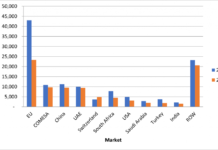
By Kovedzayi Takawira
Harare – The Zimbabwe Miners Federation (ZMF) has raised the alarm over the continued use of mercury in artisanal and small-scale gold mining, warning of its devastating health effects, particularly on women and children.
Speaking at the Zimbabwe Artisanal and Small-Scale Gold Mining (AGSM) Strategy dialogue held today, ZMF National Women Affairs Chairperson Jescah Mazivazvose said the situation in areas like Shurugwi is already dire.
“You can see some miners standing with visibly trembling hands, and you begin to wonder what could have happened,” she said.
“There is a need to find a solution as early as yesterday.”
Mazivazvose highlighted that women in mining communities are especially vulnerable to mercury exposure.
“Some women handle mercury during their trade without washing their hands, and you’ll find them breastfeeding, unknowingly putting their children at serious risk,” she said.
She also revealed dangerous practices adopted by miners to hide illegally acquired mercury.
“To prevent theft, some wrap leftover mercury in plastic and hide it inside their mouths, tucked into their gums,” she said.
According to the World Health Organization (WHO), even small amounts of mercury exposure can cause serious health problems, including damage to the nervous, digestive, and immune systems, lungs, kidneys, skin, and eyes. Mercury is considered one of the top ten chemicals of major public health concern globally.
Mazivazvose noted that at her mine in Shurugwi, they have taken steps to eliminate mercury use.
“We no longer use mercury. We go straight to the stamp mill where cyanide is used instead,” she said.
She urged authorities to act swiftly to introduce safer alternatives and enforce existing laws.
“Time is running out. Our people are slowly destroying their lives, and we cannot afford to wait any longer,” she said.
Her remarks come amid growing concerns about the environmental and health consequences of mercury in small-scale mining. As cases of mercury poisoning surface in mining communities, particularly among women and children, stakeholders are under pressure to respond urgently.
Without intervention, experts warn that the long-term impacts could be irreversible, both for public health and the sustainability of Zimbabwe’s gold sector.
The dialogue was organised by PlanetGOLD Zimbabwe, an initiative focused on reducing mercury use in artisanal and small-scale gold mining, the world’s largest source of anthropogenic mercury emissions. The project also seeks to improve the health and livelihoods of affected communities.
In Zimbabwe, the PlanetGOLD project aims to support 7,500 men and women at 11 mine sites, reduce mercury use by 4.85 tonnes over five years, and promote sustainable management across 76,000 hectares of land.
To address these challenges, the draft ASGM Strategy developed by the Ministry of Mines and Mining Development outlines key interventions. These include:
Raising awareness among gold millers and ensuring enforcement of Statutory Instrument 329 of 2002, which mandates proper record keeping at milling sites, use of approved logbooks, and safe handling of mercury and amalgam;
Training miners in mercury-free processing methods and providing incentives for adopting safer technologies;
Reviewing the legal framework governing mercury trade and usage;
Promoting best practices in mercury handling and storage;
Strengthening border controls to curb mercury smuggling;
Establishing a dedicated fund backed by the government, universities, ZMF, the Chamber of Mines, and development partners for research into mercury-free technologies suited to Zimbabwe’s ASGM sector.
As Zimbabwe’s gold sector remains a vital part of the economy, stakeholders agree that phasing out mercury is not just a health priority, it is an economic and environmental imperative.












